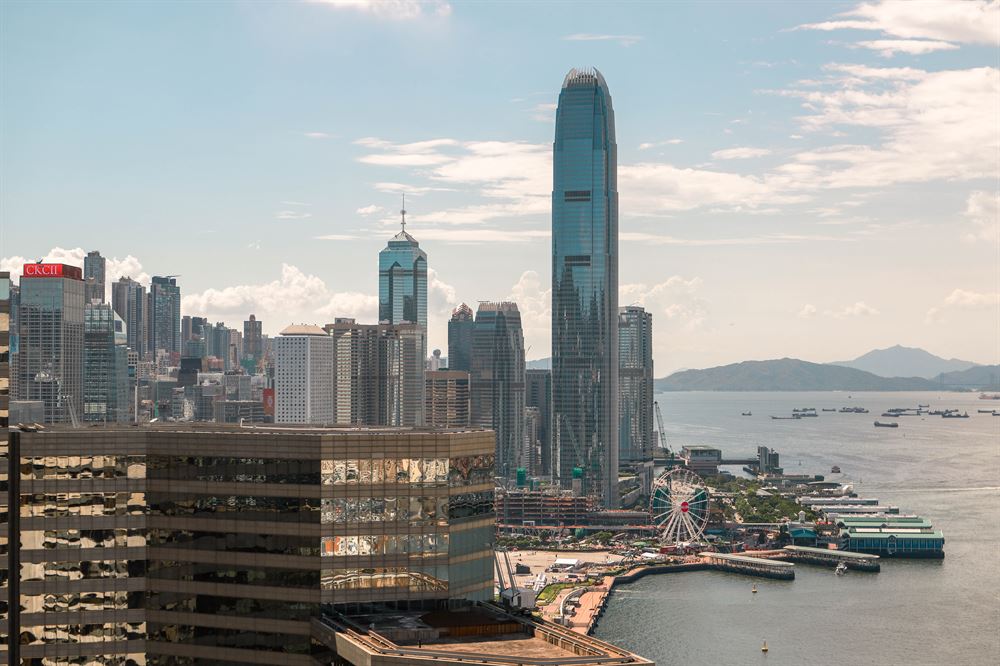
While Hong Kong’s core strengths remain intact, the special administrative region’s growing prowess as a global finance and business hub is emerging amid the backdrop of worldwide supply chain reconfiguration, global capital reallocation and international talent mobility. This is expected to provide positive impetus to the building of a “headquarters economy” in the SAR.
In Hong Kong, the number of regional headquarters operated by overseas parent companies rose over 5 percent annually to 1,410 in 2024. Invest Hong Kong — the SAR’s foreign direct investment promotion agency — has assisted over 1,300 overseas and mainland companies to set up or expand their businesses in the city from January 2023 to the first half of this year. This is expected to have attracted FDI of more than HK$160 billion ($20.56 billion) and created over 19,000 jobs within the first year of operation or expansion.
ALSO READ: HKSAR ascends to 15th place on global innovation index
Hong Kong Financial Secretary Paul Chan Mo-po said the Office for Attracting Strategic Enterprises (OASES) will soon announce its fifth batch of a dozen strategic enterprises coming to Hong Kong, with many of them being global pharmaceutical powerhouses.
Looking ahead, OASES will also seek to attract culture and creative enterprises to enhance the local sector and solidify the city’s position as the East-meets-West center for international cultural exchanges, Chan said.
The office has already attracted 84 strategic enterprises from high-tech sectors, with projected investments totaling around HK$50 billion and 20,000 job opportunities to be generated in the next couple of years. These strategic enterprises come from the four major sectors of artificial intelligence and big data, life science and health technology, financial technology, as well as new energy and advanced manufacturing.
“Hong Kong is at a crossroads when it comes to fostering a headquarters economy, where strategic initiatives such as tax incentives and facilitating measures are pivotal,” PricewaterhouseCoopers (PwC) South Private Clients and Family Office Tax Leader Agnes Wong said.
READ MORE: Hong Kong hits family office target ahead of time
“By offering a regional headquarters tax incentive and establishing a one-stop service platform, we can significantly enhance Hong Kong’s appeal to global markets, drive sustained economic development and reinforce Hong Kong’s role as a dynamic super-connector between the Chinese mainland and the world,” Wong said.
PwC recommended the SAR introduce a regional headquarters tax incentive for enterprises to engage in high value-added supply chain services and intellectual property trading. This is in line with the government’s recent efforts to promote the SAR as a multinational supply chain management and offshore trade hub.
It also suggested the SAR accelerate enhancements to existing tax concessions for the maritime sector, and introduce a new tax concession for commodity trading.
Deloitte China Hong Kong Government and Public Services Industry Leader Gary Wu said, “As mainland enterprises expand their global footprint, Hong Kong has a strategic opportunity to serve as a professional bridge between the mainland and the world by enhancing financing channels, promotional platforms and talent mobility.”
READ MORE: HZMB handles 90m passenger trips since opening
Hong Kong vaulted five places from ninth last year to secure fourth spot globally in the World Talent Ranking 2025, published by the International Institute for Management Development in September, marking the city’s highest-ever ranking and leading spot in Asia.
For the first time, the Shenzhen-Hong Kong-Guangzhou innovation cluster topped the World Intellectual Property Organization’s annual Global Innovation Index, announced in September, moving ahead of the Tokyo-Yokohama cluster in Japan.
The administration should launch a credit risk-sharing fund to lower financing costs for mainland enterprises expanding overseas, setting up a dedicated office to deliver one-stop policy consultation and financing connection services to mainland companies, and introducing dedicated business visas to facilitate cross-border business activities, Deloitte China said.
“To sustain growth and competitiveness, Hong Kong must continue to diversify its economic relationships, seeking new trade partners and expanding global linkages to maintain its position as a leading international business and finance hub,” ASEAN+3 Macroeconomic Research Office said in its latest economic research report on Hong Kong.
Contact the writer at oswald@chinadailyhk.com


